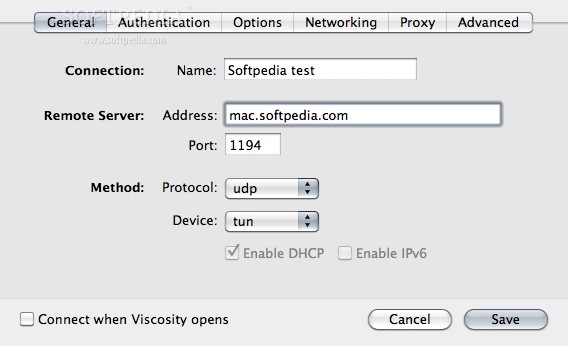
- #Viscosity vpn keygen manual#
- #Viscosity vpn keygen full#
- #Viscosity vpn keygen free#
- #Viscosity vpn keygen mac#
#Viscosity vpn keygen free#
VPN Premium + Crack here Free with download. Internet can be used to obtain a lot of information but some use it for negative purposes. There is a dark side of everything that goes side by side. Life became easier not.īut with all the convenience comes some difficulties. Overview While surfing the internet you can get lots of information, can interact with your friends and you can transfer money from here and there.
#Viscosity vpn keygen full#
I can live with perhaps needing to find a workaround for Viscosity but it creeps me out that this impacts the OpenVPN service so dramatically.It is a standalone offline setup installer full Software Cyber.
#Viscosity vpn keygen mac#
Even with only 4 or 5 Mac users this is causing quite a bit of havoc. Once the Mac exhausts it's 10 reconnection attempts, both the Mac user and other users are able to reconnect without issue. I've set OpenVPN to use debug level logging and am pushing those logs out to Splunk in the hopes of getting more information.ĭuring testing I set up a Mac client on my bench and after forcing a disconnect from the OpenVPN status screen I can readily duplicate the issue.

#Viscosity vpn keygen manual#
We don't permit cached creds so their reconnect attempts have to be manual and are fruitless as long as the Mac client is still going through it's reconnect cycle.

If you're watching the OpenVPN status when the issue occurs all connected users simply disappear. Sep 8 15:19:44 openvpn: username/.XXX:1194 TLS Error: Unroutable control packet received from .XXX:1194 (si=3 op=P_CONTROL_V1) When issue occurs a log entry shows up for each of the 10 reconnection attempts as follows: RADIUS server checks AD for creds and then pushes out to Duo for Two-Factor. Auth is done via the Duo proxy lookup using RADIUS. This business of it auto-reconnecting, even though the auto-reconnect setting is disabled, seems to be expressly an issue with the Mac client. Interestingly enough I installed a copy of Viscosity on a Windows client today and couldn't reproduce the problem.

It's not a solution but it should be the next best thing. I found some references on the Viscosity support forums to disabling reconnects in the advanced config. Has anyone else experienced a single client being able to seemingly swamp OpenVPN like this? While I agree that this is not entirely pfSense or OpenVPN issue, I believe that the fact that the Viscosity client is able to do something to disconnect other users simply via an automated reconnect is a little concerning. I've confirmed this issue in testing with Viscosity v1.7.3 and 1.7.4. We have disabled client-side caching on Windows clients so auto-reconnecting is only an issue with Viscosity clients. Running through the 10 connections of course involves the user missing or ignoring the Duo notifications on their mobile but the disconnects generally happen within the first 2 re-connection attempts. My issue is that when Viscosity does it's 10 re-connection attempts once per minute, any other users who are already connected to OpenVPN are disconnected and cannot reconnect until that Viscosity client abandons it's attempt to reconnect.

It is actually set not to reconnect automatically but that's an issue I can approach SparkLabs about later. If the Viscosity user gets disconnected for any reason, Viscosity attempts to reconnect automatically. PfSense is paired with Duo for two-factor authentication and there is a local Duo proxy running that pulls authentication from Active Directory before handing the result off to Duo. The company has purchased copies of Viscosity to give out to a handful of OSX users. Most of their users use the OpenVPN client on their home computers for RDP sessions to their in-office desktops. I have a customer that has been running OpenVPN on a virtualized pfSense instance for many years virtually issue free.Īt the moment they're running 2.3.4p1 in a 64-bit instance on a 100Mbps fiber line. I realize this is more of a Viscosity issue but I'd like to pose it here as it impacts the pfSense OpenVPN implementation in a way that I wouldn't expect.


 0 kommentar(er)
0 kommentar(er)
